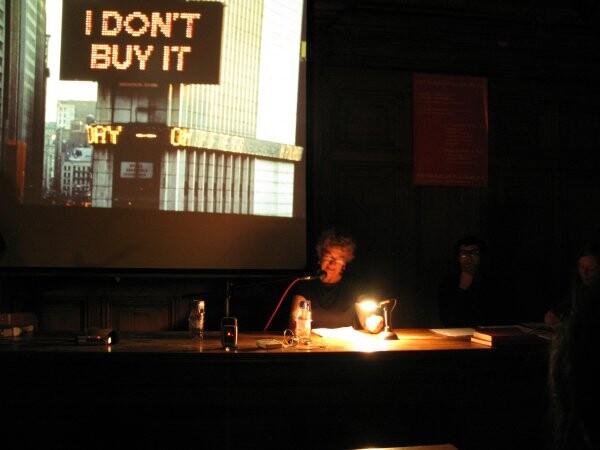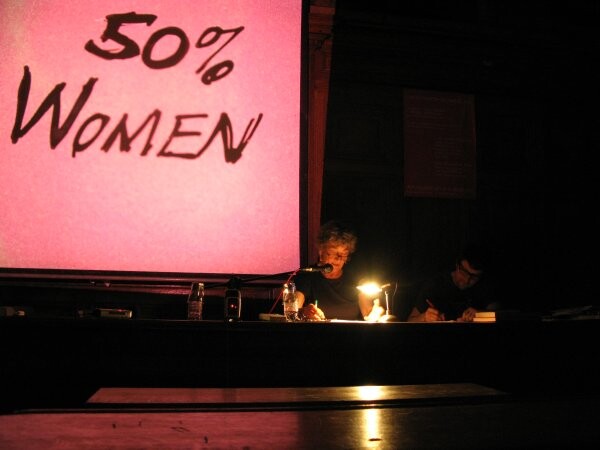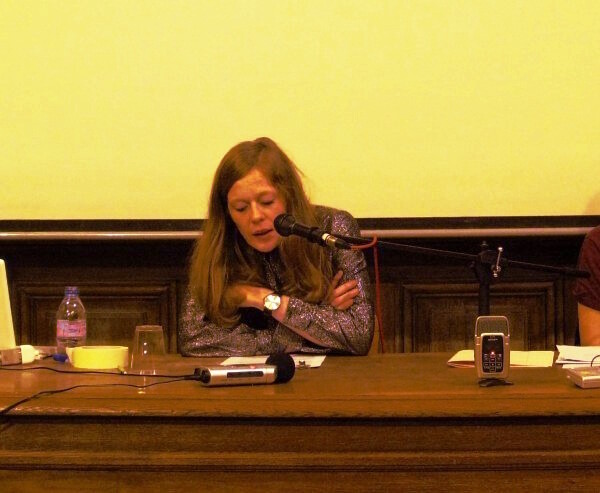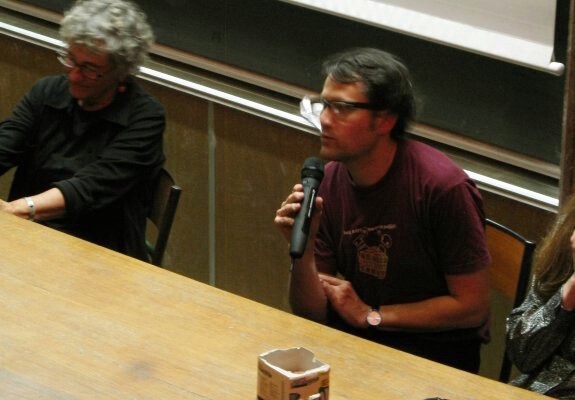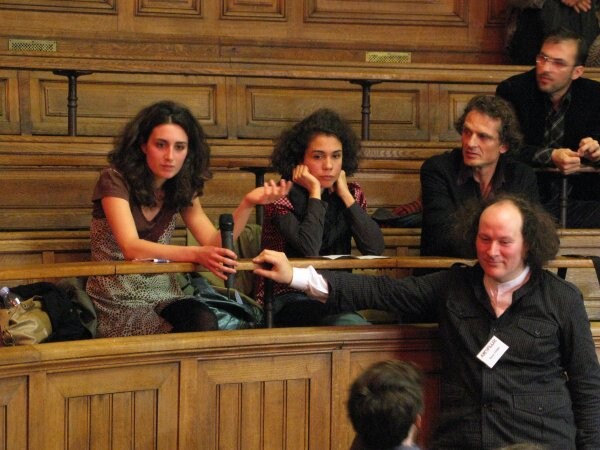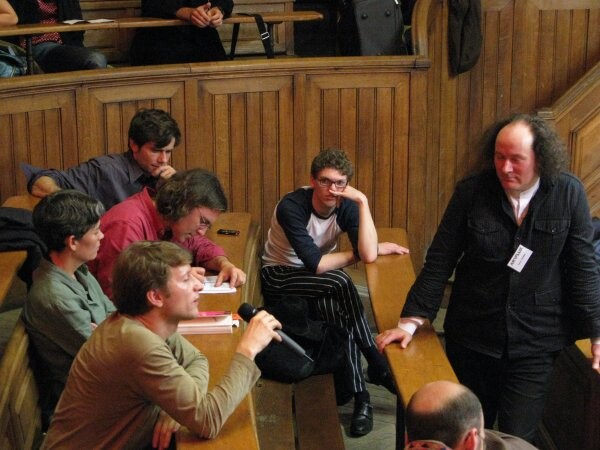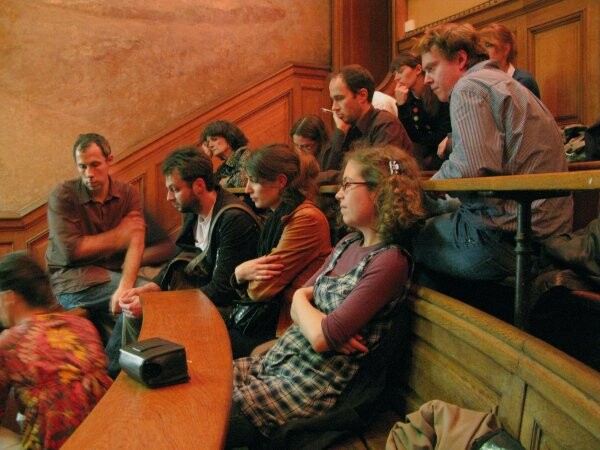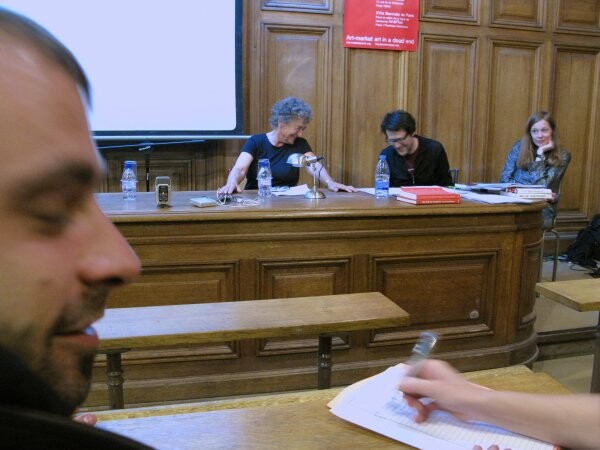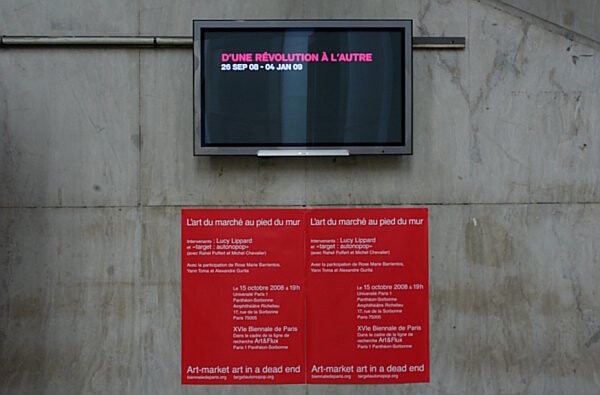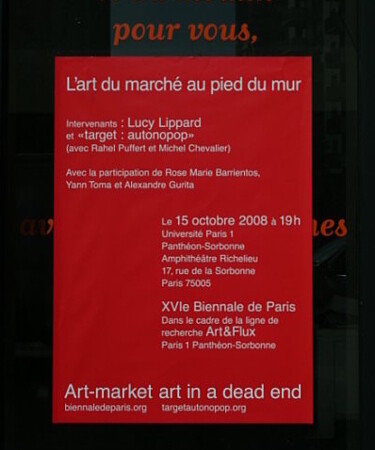Amphithéâtre Turgot
17, rue de la Sorbonne
Paris 75005
Lucy Lippard, her work and person, is unquestionably one of the essential reference-points of contemporary art since the 1960s. She has published 20 books on feminism, art, politics and written for Art in America, The Village Voice, In These Times, and Z Magazine, among others. As author and exhibition organizer, she was one of the central figures of the development of historic conceptual art. Her now-classic commentary "The Dematerialisation of Art" spurred debates during and following conceptual art, and her famous book "Six Years" is one of the most important sources of that time.
In her role as a cultural critic, curator, and commentator she dismissed very insistently – and from the very beginning – the detachment traditionally connected with these activities, while her experimental methods yielded new approaches. She is a pioneer of feminist art critique and still one of its most important exponents, as well a role-model for art activists. She participated in several activist groups, including the legendary Art Workers Coalition and the PAD/D in the 1980s.
As a critic, Lippard belongs to those who most effectively broke with the elitist self-image of professional art appreciation. Reading her texts today makes the following clear: she established a kind of language in the world of art that opened the field in a sheerly incalculable way for completely new and important possibilities of reflection, critique and participation – far beyond the flowery phrases of well-established art appreciation, or the rituals of that predominately male demeanor of expertise.
"Art-market art in a dead end"
featuring: Lucy Lippard
and Rahel Puffert and Michel Chevalier for "target: autonopop"
Yann Toma and Rose Marie Barrientos for Art&Flux,
and Alexandre Gurita (Biennale de Paris)
In 1979, Lucy Lippard wrote:
"In a period where everybody had better be thinking quick about what to do next about the world, art has been backed into a corner where artists are "allowed not to think" (as opposed to "not being allowed to think," which we condemn in other societies). This taboo effectively keeps artists out of the way and at the same time allows the present single-class buying art audience to mold it and its uses."
The ever-increasing contradictions and oppressiveness of art-market recruitment, (re)production, mediation, and discourse open the way for a (complete) social delegitimation of this sector. This situation is an opportunity to transfer the "art" designation to a different group of already-exisiting actors and institutions, whose innovative and historically-informed art practice is not determined by commodification.
Lippard’s talk was followed by a presentation of what the "target: autonopop" reading of her work has meant to it, practically, in the present day art context.
The floor was open to discussion afterwards.

